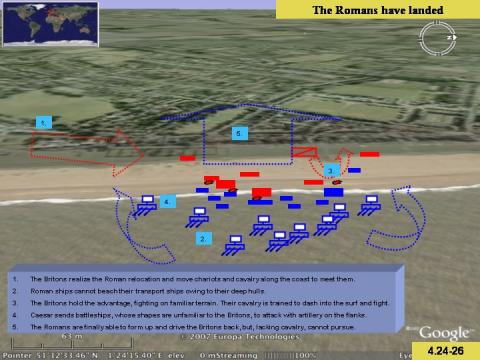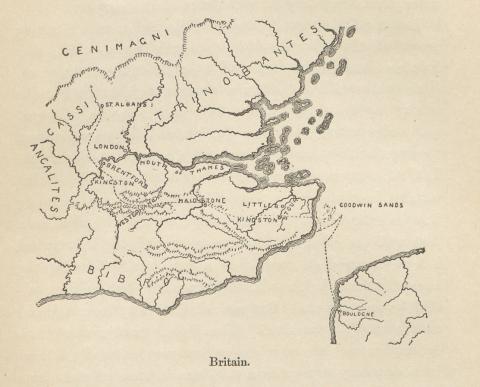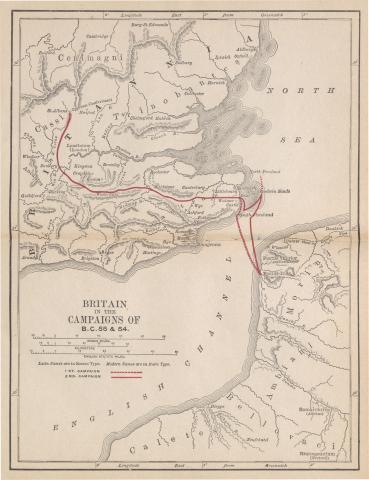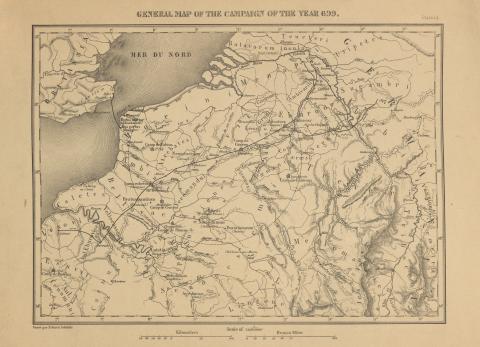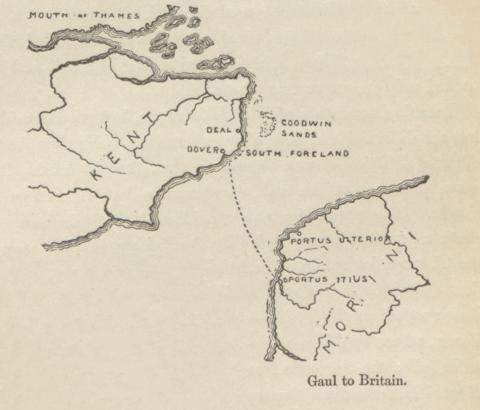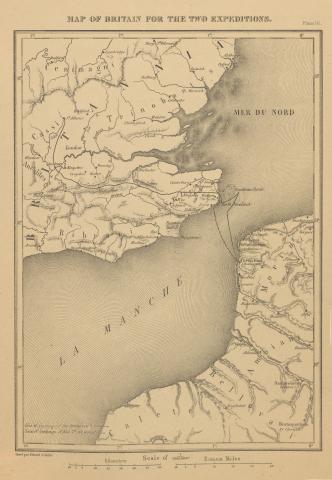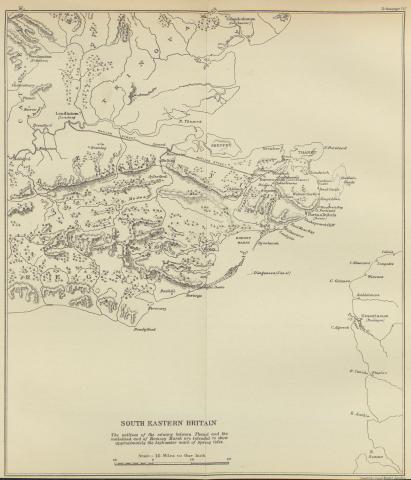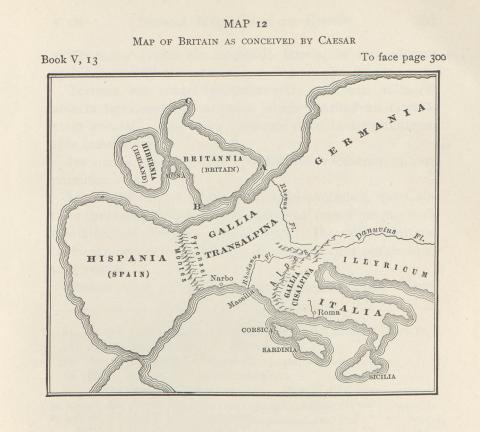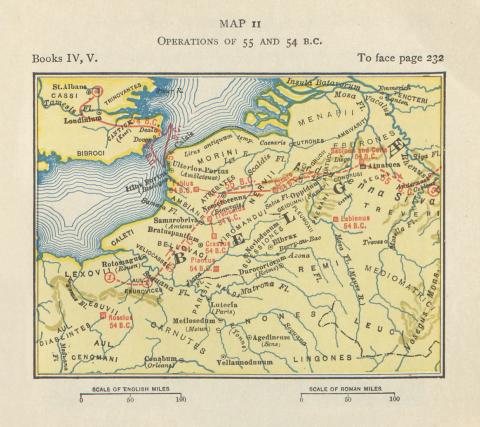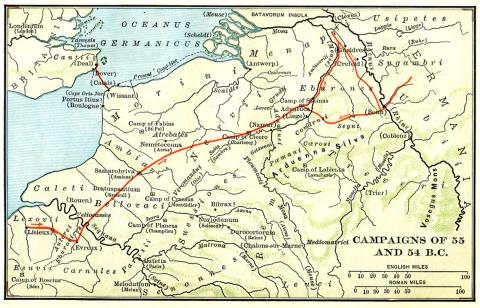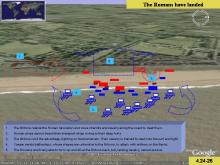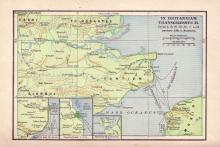At barbarī, cōnsiliō Rōmānōrum cōgnitō praemīssō equitātū et essedāriīs, quō plērumque genere in proeliīs ūtī cōnsuērunt, reliquīs cōpiīs subsecūtī nostrōs nāvibus ēgredī prohibēbant. Erat ob hās causās summa difficultās, quod nāvēs propter māgnitūdinem nisi in altō cōnstituī nōn poterant, mīlitibus autem, īgnōtīs locīs, impedītīs manibus, māgnō et gravī onere armōrum oppressīs, simul et dē nāvibus dēsiliendum et in fluctibus cōnsistendum et cum hostibus erat pūgnandum, cum illī aut ex āridō aut paulum in aquam prōgressī, omnibus membrīs expedītīs, nōtissimīs locīs, audācter tēla cōicerent et equōs īnsuēfactōs incitārent. Quibus rēbus nostrī perterritī atque hūius omnīnō generis pūgnae imperītī, nōn eādem alacritāte āc studiō quō in pedestribus ūtī proeliīs cōnsuērant utēbantur.

